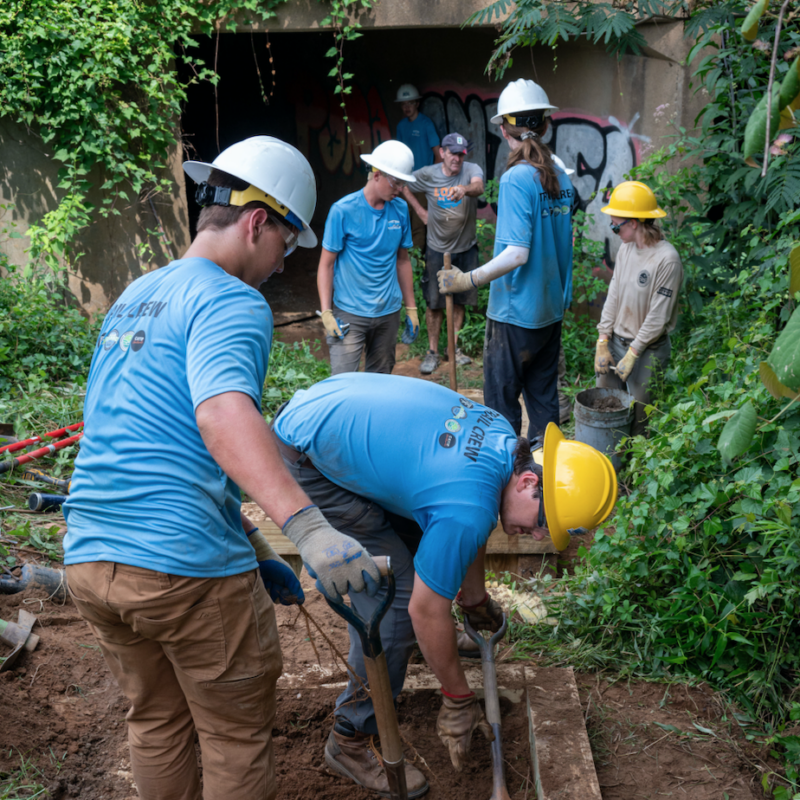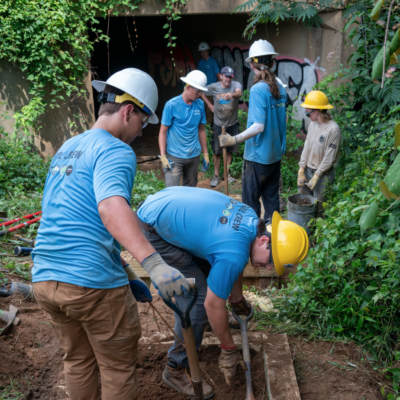About two and a half years ago, John Jackson, the director of education technology at the UVA School of Medicine, came to the school’s facility committee with news that some members found a bit unsettling. He pointed out many medical schools—peer institutions—that were offering students more technological resources than UVA: online Power Point presentations and audio recordings of lectures.
He told faculty to anticipate pressure from their students to have access to these kinds of outside, online resources. He also warned that the lack of these things could soon be seen as a recruiting disadvantage.
 iPods are cool and all, but some med school profs wonder if podcasting lectures is driving down classroom attendance. |
"This news was not accepted very warmly amongst our faculty. They were not inclined to do this," says Jackson. "It’s always difficult to change, but there were also these concerns about classroom attendance. There were also some concerns about intellectual property issues and patient confidentiality."
As Jackson anticipated, students came forward and, in Jackson’s words "made a very strong and formal request for audio recordings of lectures to be made available. And they persisted."
Jackson laughs a little as he remembers this. "They wouldn’t go away."
This August the UVA School of Medicine took a large step forward in addressing the changing technological landscape in education. It started putting 80 to 90 percent of its lectures in basic science courses—attended by first- and second-year med students—online in the form of mp3 podcasts, despite the concern from some faculty that making entire lectures available online would decrease attendance.
"There was a lot of hand wringing about how it would affect classroom attendance," says Jackson. "Preliminary data suggests that it has dropped our attendance by four or five people per day out of a class of 140."
Along with providing students podcasts—which Jackson says about half of the students use as supplementary material—course directors also post most Power Point presentations online. It’s a move that signals a shift in how today’s students learn and acknowledges changing student expectations of faculty. It also opens up new questions of how technology is best used in the medical classroom and whether new online resources will lead to students simply skipping lectures.
"When we started with lecturing notes, people didn’t have a problem with that," says Dr. Robert Bloodgood, a faculty member. "Putting up the Power Point presentations maybe was considered a bit more risky in terms of encouraging people not to come to lectures. We had a lot more discussion when we started talking about audio recording and video recording of lectures. There, people did start worrying about whether this would start to become a correspondence school, whether we would really incentivize students not to come to lectures."
The decision to provide students podcasts comes as the school is seeing a decline in second-year-student attendance at lectures that preceded to posting of audio content to the Internet. "Course directors have a very mixed response about whether [declining attendance in the second year] concerns them or doesn’t concern them," says Bloodgood.
The drop in attendance since the implementation of recording lectures has been slight—less than 4 percent—and anecdotal; faculty are still collecting data to see if podcasting lectures result in lower attendance. But Jackson says the School of Medicine is moving forward with its recording program. He anticipates installing a new automated recording system that doesn’t require paying students to stop and start the recording devices, as they currently do.
The use of technology, though, remains an open debate.
"I don’t think faculty should be pandering to students in cheap ways to get them to come," says Bloodgood. "You should be using things in the lectures because they’re going to enhance their learning."
"Sometimes technology is a good solution," says Jackson, "and sometimes ‘Read the book’ is a good solution."
C-VILLE welcomes news tips from readers. Send them to news@c-ville.com.





